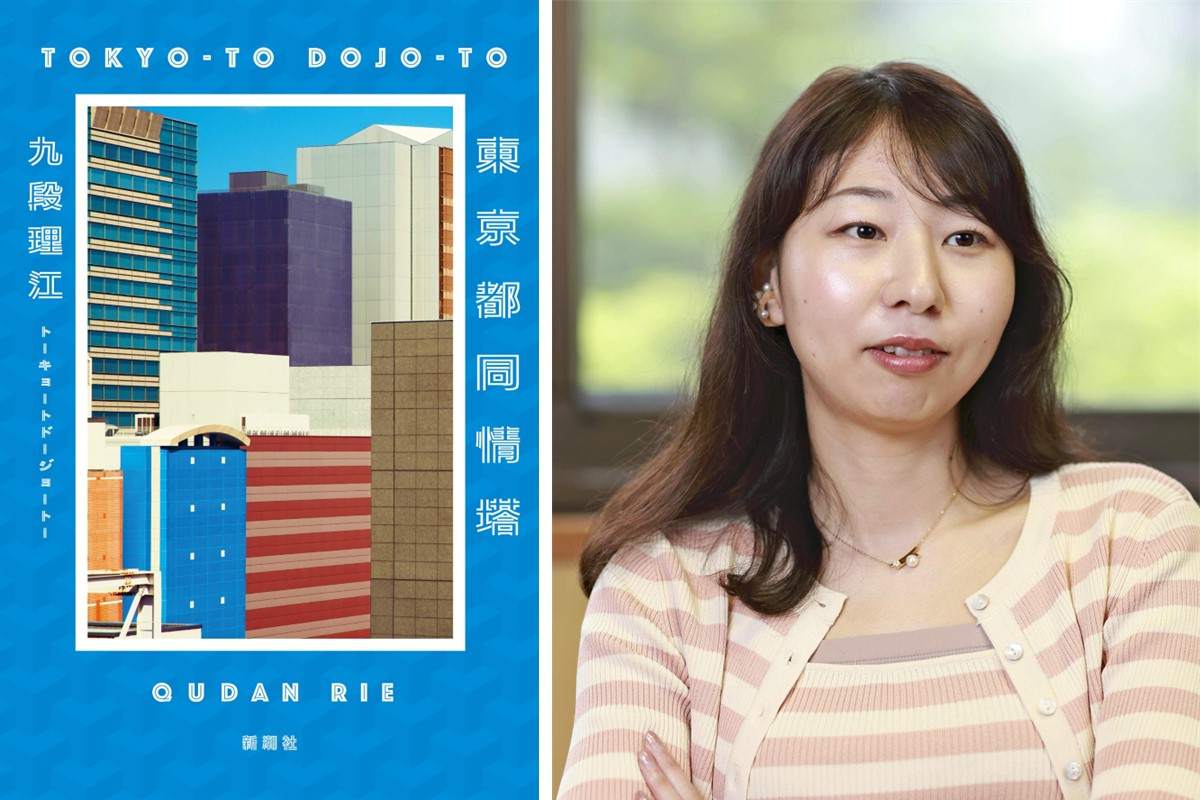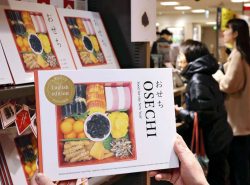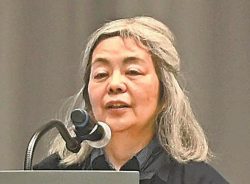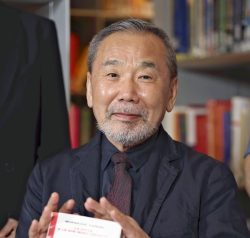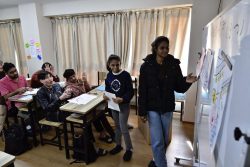AI Works Still Need A Human Touch, Says Prize-winning Novelist; ‘Sympathy Tower Tokyo’ Weaves in Lines from ChatGPT
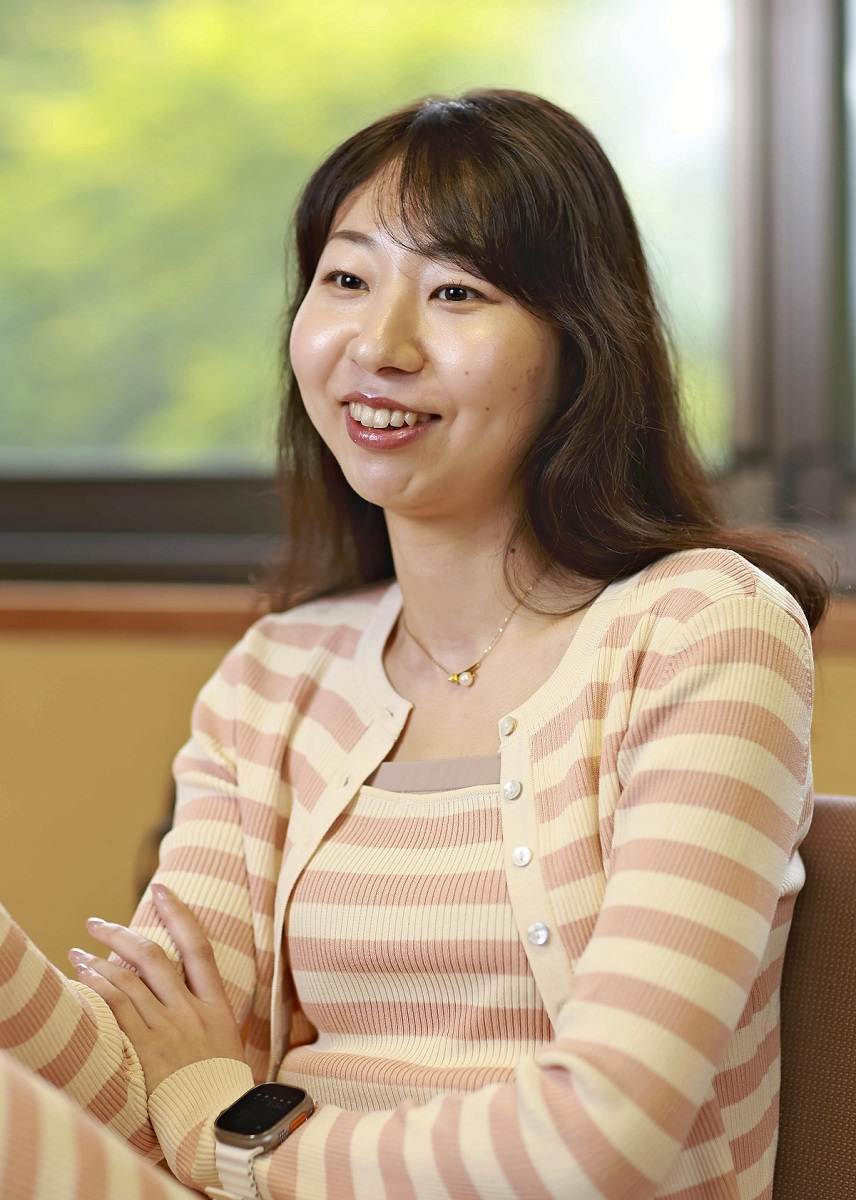
Rie Qudan speaks during an interview in Tokyo in April.
14:17 JST, June 16, 2024
Novelist Rie Qudan sparked controversy in January when she won the Akutagawa Prize, one of Japan’s most prestigious literary awards. Her winning novel, “Tokyo-to Dojo-to” (“Sympathy Tower Tokyo”), had been written with the help of AI. But in an interview with The Japan News in April, Qudan argued that even when AI is used, writers shape the language through their taste and skills.
Her novel tells the story of a curious structure: A tower is to be built in which prisoners can live blissfully in a virtual Tokyo, where there is a new national stadium designed by the late architect Zaha Hadid from Iraq. (Her work was chosen once for a stadium for the 2020 Tokyo Olympics, but it was canceled due to building costs.) Protagonist Sara Machina, an architect in her 30s, enters a competition to design the tower, but finds herself at odds with the project’s goals, and she struggles to reconcile her work with her own ethics.
The characters in the novel use a generative AI model called “AI-built” to look up the definition of words and edit texts. Qudan says she used generative AI to help write the lines for AI-built, adding that these sentences only total around one page of a 143-page novel. One sentence is copied verbatim from generative AI. When irritated Machina asks the AI if it knows that it’s illiterate, the unedited reply is: “No, I am an AI model that performs text-based information processing, so I am not illiterate.” (This translation is by The Japan News as the novel has not yet been published in English.)
At a press conference after the prize was announced, Qudan said, “I used AI-generated text for about 5% [of the novel], and I hope to have a balanced relationship with AI.” Naturally, the 33-year-old’s words grabbed headlines.
“Five percent is not much of an exaggeration,” Qudan says. She was often in dialogue with AI as she wrote and would ask it to evaluate sentences she had written. “AI is like my partner. I also call it my second editor,” she says.
“If you ask the AI to think up a novel and then copy whole sentences, that’s problematic. But creativity comes out of the questions you ask AI, and how you change the responses reflects your skill as a writer.”
Qudan spells her name with a Q — not the normal K — because she finds the Q’s curves more in line with her aesthetics, but also because she wants to be a novelist that poses questions. And with her novels, she has started many people on the question of how AI should relate to literature.
Top Articles in Culture
-

BTS to Hold Comeback Concert in Seoul on March 21; Popular Boy Band Releases New Album to Signal Return
-

Director Naomi Kawase’s New Film Explores Heart Transplants in Japan, Production Involved Real Patients, Families
-

Tokyo Exhibition Offers Inside Look at Impressionism; 70 of 100 Works on ‘Interiors’ by Monet, Others on Loan from Paris
-
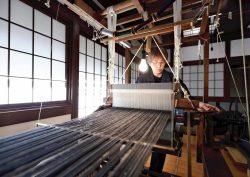
Traditional Japanese Silk Hakama Tradition Preserved by Sole Weaver in Sendai
-

Exhibition Featuring Yoshiharu Tsuge’s Manga World Underway in Chofu, Tokyo; Unique, Surreal Works Draw Steady Crowds
JN ACCESS RANKING
-

Producer Behind Pop Group XG Arrested for Cocaine Possession
-

Japan PM Takaichi’s Cabinet Resigns en Masse
-

Man Infected with Measles Reportedly Dined at Restaurant in Tokyo Station
-

Israeli Ambassador to Japan Speaks about Japan’s Role in the Reconstruction of Gaza
-

Videos Plagiarized, Reposted with False Subtitles Claiming ‘Ryukyu Belongs to China’; Anti-China False Information Also Posted in Japan
